- Home
- Kristi Belcamino
Blessed Are Those Who Weep Page 2
Blessed Are Those Who Weep Read online
Page 2
“Ella?” We both turn at the deep voice. Donovan. Relief floods my body. I leap up and throw myself into his arms, hugging him with the baby in between. His five o’clock shadow scratches my cheek.
“You okay?” He pulls back and holds my chin, meeting my eyes. His dark eyes under heavy brows look worried.
I shake my head. No, I’m not okay. I just saw an entire family that had been slaughtered.
“Heard you were here,” Donovan continues. “What’s going on?”
“Detective Sean Donovan. What are you doing slumming in my city?” the detective interrupts. Her voice sounds too familiar for my liking. It’s the same thing everywhere Donovan goes.
It doesn’t help that this year he was on the cover of the Sexiest Bay Area Cops calendar. He only did the calendar because sales go to fight kid’s cancer. Every other cop in the calendar went shirtless, but Donovan refused and still made the cover wearing his tight black tee.
“Hey, Khoury. I see you met my fiancée, Gabriella Giovanni.”
“You still keeping the streets clean in Rosarito?” she asks him.
“Yes, ma’am.” He smiles at her, and she smiles back.
Even after two years of dating, the low rumble of his voice never fails to make me weak in the knees, so I suppose I can’t blame other women for turning to mush. He rakes one hand through his perpetually messy hair, making it stick up more than usual. I don’t like that he does this sort of anxious, nervous gesture around another woman, but I brush away the flicker of jealousy.
The thudding of a small, dark helicopter above us drowns out Khoury’s response to Donovan. She looks up, scowling.
“What the hell is that?” Khoury shouts. Her hair blows in the wind from the chopper. She turns toward Officer Jackie. “Get them the hell out of here. Nobody has clearance to fly over my crime scene. And most definitely not this low.”
Donovan squints up into the sky. I tuck the baby’s head into my neck as bits of trash start whirling on the ground around us.
Khoury shades her eyes from the sun with one hand and glares at the helicopter. Almost imperceptibly, the helicopter rises. Pretty soon it is a small dot heading toward the ocean. Almost as an afterthought, Khoury turns back to Officer Jackie. “Find out who that belongs to. If that’s a TV news station, I’ll have their ass for this.”
Khoury gives me an appraising look and turns to Donovan. “Sean, can I talk to you privately?”
He turns toward the detective, but I touch his arm, feeling the hard muscle underneath, and he stops. He leans in to hear my voice. My mouth brushes his ear as I speak.
“Donovan, they want me to turn this baby over to CPS. I can’t do that.” I hate the pleading in my voice. “Can you please talk to them? Tell them she should stay with me. I’ll keep her until they find the rest of her family. I’ll take care of her.”
Donovan doesn’t answer; he only nods grimly before walking over to where the detective is waiting a few feet away.
The baby’s eyes are closing, so I rock her, watching Donovan and the detective speak in hushed voices. I can make out some of the words. Bloodbath. Baby. Shell shock.
Every once in a while, Donovan looks my way and gives me a small, tight-lipped smile, as if he wants to be supportive and encouraging but is more worried than anything. His mouth is set in a grim line as he makes his way back to me. It’s not good.
“You have to turn the kid over to CPS,” he says. “No way around it. It’s the law.”
Screw the law. I hold the baby even tighter and don’t answer.
He hesitates a moment. “You know, maybe you feel this way because—”
“No,” I interrupt. “It is not because of that. It’s not.” Deep down inside, I worry he’s right. But I tell myself I would act this way about a helpless child no matter what.
“You don’t have a choice. Amanda says she’s okay with you taking the child to the police department. CPS is meeting us there.”
Amanda?
“Donovan, she needs me. Look.” I lean my head so he can see how the girl’s chubby little fingers are wrapped in my hair. The girl has fallen asleep in my arms, her head nestled into me, her mouth open, her warm breath against the hollow of my neck. “I’ll take her to the station, but I’m not handing her over to anyone.”
“I’ll meet you there.” Donovan turns to leave.
“Can’t we go together?”
He points toward a waiting squad car. “They want to drive you.”
The police officer, a kid of about twenty, holds the back door of the squad car open for me. “Sorry, miss, we don’t have a car seat right now, but the station is only about eight blocks away . . .” He trails off.
I pull the seat belt around the baby and me and click it into place. The backseat of the squad car smells like piss and vomit and sweat, all thinly masked with a pine air freshener. The officer meets my eyes in the rearview mirror as he starts the engine. Across the parking lot, Donovan is on the phone, pacing, as if he is agitated. I can tell he thinks I’m being difficult, unreasonable. I don’t care right now. This baby needs me. Her entire family was slaughtered in front of her. For whatever reason, she is clinging to me, and I’m keeping her with me as long as I can.
Another baby-faced cop holds up the crime-scene tape and our car slides under it. I make the mistake of looking out the window right in time for the photog at our competition—the San Francisco Tribune—to snap a picture. The camera is so close to the window that I’m surprised his toes aren’t run over from our tires. The flash momentarily blinds me, and when I can focus again, we are past the mob of reporters that had been running alongside our car. I close my eyes and dip my head into the girl’s curls.
Chapter 4
MY CAT, DUSTY, is kneading the pillow near my head and meowing loudly with hunger when I wake the next morning.
The sun is streaming through the windows of my studio apartment. Donovan is long gone.
During the several hours I spent at the police station last night, I repeated my account of finding the bodies once again, got fingerprinted to rule my prints off anything in the apartment, and handed the baby girl over to a woman from Child Protective Services.
“It looks like most of her relatives were in that apartment, but luckily, the police have located her father. We’ll take good care of her until he can come get her,” the woman said and handed me her card. Mrs. Kirkland. No first name. Like a kindergarten teacher.
The last image I have of the girl is her reaching over the woman’s shoulder, arms outstretched toward me, her face bright red from howling.
I know she’ll be with her father soon, but I can’t help feel I let her down.
The clock shows it’s past nine. I’m late to work.
Thinking of work sends me sitting straight up in bed. I never returned the messages on my cell phone last night. I meant to call my editor, Matt Kellogg, and tell him everything as soon as the police released me, but when I saw it was past midnight—past our deadline—I went home and fell into bed.
A knot forms in my stomach when I think about the newspaper, but I couldn’t exactly excuse myself from being questioned as a witness in a mass murder by telling the cops I was on deadline.
Guilt is replaced by a pang of longing. Even though I never saw her before yesterday afternoon, my arms yearn to hold that baby, as if they’d spent the last year cradling that girl and now there’s a phantom feeling of something missing. It doesn’t make sense. I don’t even know her name.
In the kitchen, Dusty winds himself around my bare legs as I dump some cat food in his bowl and cut up some small pieces of cheese to make up for his late breakfast.
Next, I head straight to the bathroom and stick the thermometer in my mouth before logging the numbers on the chart I have taped to the wall. When I’m done and see today’s temperature next to the number from yes
terday, my heart pounds so hard that I feel it in my throat. I’m ovulating.
I dial Donovan. His voice mail picks up.
“Are you in the city? I just took my temperature, and I need you to come home if you’re still around. Otherwise, let’s meet back here tonight. Love you.”
I hang up, and a tiny tendril of hope unfurls. We can try again tonight. Please make it work this time.
After starting the moka pot on the stove, I heat some milk and set out my big coffee bowl. Donovan has left out the sourdough bread for me on the kitchen table and scribbled a note:
“Wanted to let you sleep in. Call me if you need to talk or grab lunch or something. See you tonight.” He signed it “D” with a big heart around it.
Once the coffee percolates, I pour the liquid gold into my big mug and top it with the warm milk. Hopefully the caffeine will give me the kick start I need. I slept fitfully, glancing at my red clock numbers every half hour until about 4:00 a.m., when I must’ve fallen into such a deep sleep that I slept through Donovan getting ready for work.
Besides the note and bread, other signs he was there remain . . . an empty press pot of coffee, bread crumbs from his toast on the table, a knife smeared with Bonne Maman wild blueberry preserves in the sink. The stack of newspapers he usually leaves for me is missing, though. The coffee table in front of my beat-up red velvet couch is also bare. I peek out onto my balcony, where we sometimes have coffee on sunny mornings, but the papers aren’t there, either.
I need to know what the Bay Herald had on the murders. That way I’ll know how deep shit I’m in when I get to work.
As the hot water beats down on my head in the shower, a memory rushes back, as it sometimes does when I’m especially tired, like this morning.
I’m staring at the monitor off to the side of the exam table. Anxiety surges through me. The cold, flat metal slides around the slimy jelly on my abdomen. The flickering gray-and-white image on the monitor shows a tiny, shrimplike object curled into a comma. Not moving.
Please, God. Please let there be a heartbeat.
Wetness slips down my cheek into my ear. It takes me a few seconds to realize the doctor has removed the cold metal from my belly and gently pulled down my exam gown. She takes my hand in hers. Before she says a word, I see her eyes as she leans down. Before her lips move, I already know what she’ll say.
Chapter 5
THE SIDEWALKS OF North Beach are teeming with people, jostling on their way to work. Some of the older Italian men have already staked out spots at sidewalk tables, where they’re sipping espresso and smoking cigarettes. The salty ocean breeze mingles with the aroma of fresh coffee and baked goods.
The strip clubs are still buttoned up, but the restaurants and cafés are bustling. People are lined up in front of one small Columbus Avenue restaurant famous for its breakfast.
Café Tucca is on my way to where I parked my car last night. I’m so sleepy I’ll need more than my regular bowl of coffee today. Plus the coffee shop will have all the morning newspapers. I get a few admiring glances as I head for the café in my high-heeled sandals, and I’m glad I’m fooling people.
My Italian mother has drummed into me la bella figura—looking your best—but I fail at achieving it ninety-nine percent of the time. I interpret the philosophy my own way—by dressing up on the days I feel the worst, sort of a bait-and-switch maneuver. Since today is an especially shitty morning, I spent extra time on my hair and makeup. I also threw on my nicest formfitting black wool pants, a silky navy blouse with white polka dots, and black patent-leather slingbacks, which are totally inappropriate for covering the crime beat.
Inside the café, I flip through the stack of discarded newspapers someone left on a table while I wait for my cappuccino.
The Bay Herald has a tiny front-page story by May, the night cops reporter. It has the bare basics of what happened: Five dead. Police investigating. It doesn’t even identify the victims or say how they were killed. At least we have something, even if it’s not much.
The San Francisco Tribune is on another table. I’m nervous to see what they wrote, but even so, I’m not prepared for the giant photo.
It’s a picture of me. Above the fold. Under a huge headline. “Massacre in the Mission: Five Dead. Family Slain by Samurai Sword,” with a subhead: “Reporter found with baby at scene of gruesome slayings.”
In the photo, I’m looking out the backseat of the squad car with the baby’s head tucked under my chin.
My index finger traces the contours of the baby’s face in the black-and-white photo before my eyes move up to the image the photographer caught of me.
I don’t recognize the look in my eyes. I don’t recognize myself at all. My hair is ratty from the girl twirling it in her fingers. My lipstick is rubbed off. My mascara is smeared. The look in my eyes is what floors me. I look . . . unstable. Frantic. Deranged.
I read the headline again. Samurai sword. Yes, I suppose that would have caused the carnage I saw, but who carries around a samurai sword? And how did Andy Black at the Tribune get info on the murder weapon so early? Usually the cops won’t release that until the coroner’s report is complete. The Tribune kicked our ass on this story. And I was there as a witness. The realization makes my mouth dry.
Grabbing my coffee, I rush out, taking the paper with me. Did Donovan hide the papers from me? I scan the story as I walk to my car. It contains no hint that the cops have a suspect or that an arrest is pending. It says that Maria Martin’s husband is in Iraq. It will take at least a week for him to get back to the U.S. because of national security issues. Along with his wife, the dead include his parents, his sister, and his nephew. The story says the child apparently has no other living relatives besides her father. My heart breaks for him. He’s lost his entire family and is thousands of miles away. That little girl will grow up without knowing her mother or her grandparents or aunts and uncles or cousins.
I can’t imagine life without a big family.
As soon as I get to my car, I call Kellogg.
He answers on the first ring.
“Giovanni, what the hell is going on? How do you think it looks that the Tribune has more details on this massacre, when you were there? Arnold is going off the rails about this. One of his reporters is in the middle of the biggest crime story in San Francisco since Harvey Milk was shot, and you’re on the front page of the fucking competition. Jesus Christ.”
Guilt swarms over me, making my face flush with heat. I crank up the air conditioner in my car even though it’s cool outside.
“They kept me past midnight, questioning me. I wanted to call, but I couldn’t.”
His long sigh is a bit reassuring, but I’m still braced for an ass chewing.
“That’s what I told Arnold. I know things have been tough for you lately, but I’m worried you’re losing your reporter instinct.”
I pull over to the side of the road and press my forehead against the cool glass of the window, staring, unseeing, at a man waiting for a bus. What is wrong with me?
The images of the slain bodies come back full force. I only have time to throw open my car door before I vomit onto the pavement and convulse until I’m dry heaving. From my phone on the passenger seat, Kellogg’s tiny voice asks if I’m okay and repeatedly calls my name.
When I’m finally done, I wipe my face on my sleeve. It was a delayed reaction, but I feel better. I’ve been operating on autopilot since yesterday.
“I’m sorry,” I say in a hoarse voice. “I don’t know what happened. This has really fucked me up.”
“Head on in when you feel up to it. I’ll see what I can do to try to salvage your job.”
Chapter 6
I CAN’T SHAKE the memory of that girl stretching out her arms toward me or the look on her face—like I’d thrown her to the wolves. Thinking of her as I drive across the Bay
Bridge through thick, low-hanging fog makes my heart ache and fills me with anger at the same time. She’s not yours. But I can’t help the way my body felt when it held her. As if she were my own child. Something about being the person to find her in that horrific scene has bound me to her. It doesn’t make sense, but it feels more real than anything I’ve felt in my life.
Driving to work, the landscape is brown and gray today, leached of all color. Usually, emerging from the Caldecott Tunnel into the East Bay means a welcome change in climate from coastal fog to sunny skies. Today, coming out of the tunnel, I’m greeted with more cloud cover that stretches for miles, obscuring the summit of Mt. Diablo in the distance.
Everything seems ugly, as if my rose-colored glasses have broken. Even other drivers on the freeway are scowling and flipping the bird and cutting people off.
In the newsroom, a few people look at me askance, but most ignore the fact that I was on the front page of the competition today. At least nobody says anything. At this point, they probably expect this kind of thing from me.
Last year, I was in the paper, too. All the Bay Area papers. For killing a man. Oh yeah, and I was in the paper the year before that, as well. Same thing. Killing someone. Both were bad men. Horrible men. One was a serial killer who preyed on children. The other was a crooked, murdering cop. Even though every single second of my life I regret killing someone, both acts were in self-defense. If I hadn’t killed them, they would have killed me or someone else.
Even so, I’ve been in heavy-duty therapy about it. The guilt will haunt me to the grave. Even my priest, Father Liam—after hearing me confess the killings nearly every week for six months—has banned me from confessing it ever again. I’ve considered doing confession at another church without telling him.
And it has earned me a bit of a reputation in the newsroom. Terrible jokes abound, like the sign in the copy editor area that says, “Don’t fuck with Giovanni’s copy or she’ll send you swimming with the fishes.”

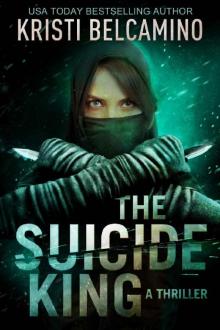 The Suicide King
The Suicide King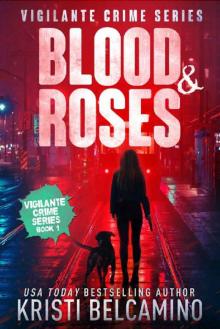 Blood & Roses (Vigilante Crime Series)
Blood & Roses (Vigilante Crime Series)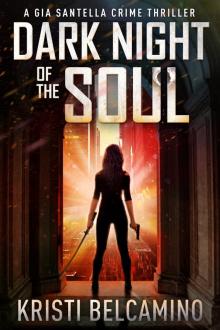 Dark Night of the Soul
Dark Night of the Soul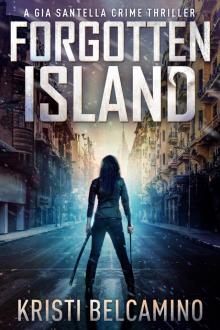 Forgotten Island
Forgotten Island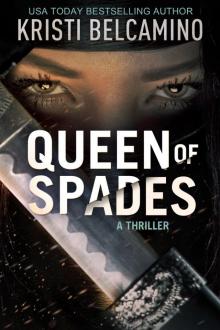 Queen of Spades
Queen of Spades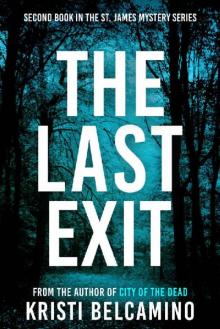 The Last Exit: A St. James Mystery (St. James Mysteries Book 2)
The Last Exit: A St. James Mystery (St. James Mysteries Book 2)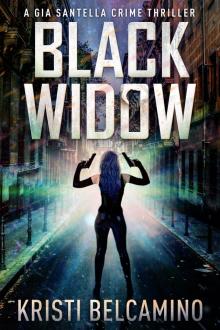 Black Widow
Black Widow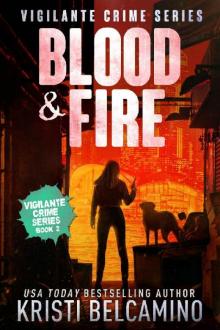 Blood & Fire (Vigilante Crime Series Book 2)
Blood & Fire (Vigilante Crime Series Book 2) End Game
End Game Buried Secrets
Buried Secrets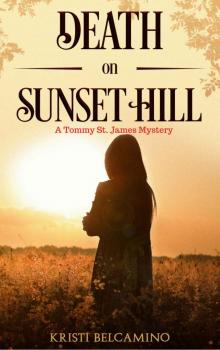 Death on Sunset Hill (A Tommy St. James Mystery Novella Book 2)
Death on Sunset Hill (A Tommy St. James Mystery Novella Book 2)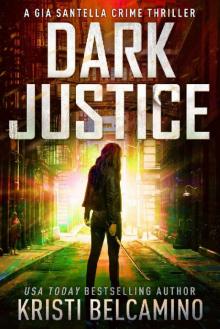 Dark Justice
Dark Justice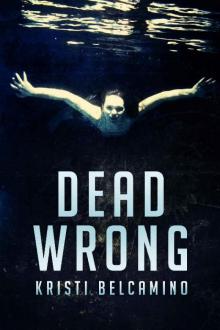 Dead Wrong
Dead Wrong No Way Out
No Way Out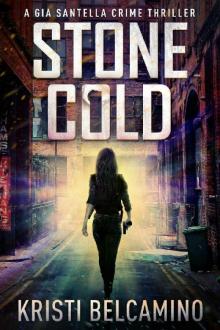 Stone Cold
Stone Cold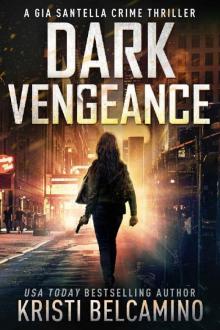 Dark Vengeance
Dark Vengeance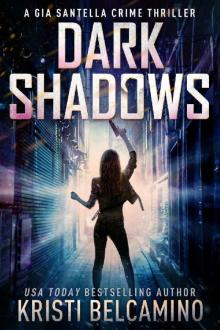 Dark Shadows (Gia Santella Crime Thrillers Book 11)
Dark Shadows (Gia Santella Crime Thrillers Book 11)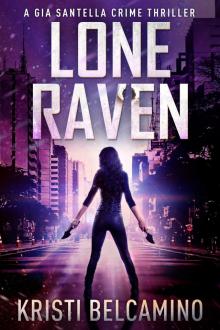 Lone Raven
Lone Raven![[Gia Santella 01.0] Gia in the City of the Dead Read online](http://i1.bookreadfree.com/i/03/16/gia_santella_01_0_gia_in_the_city_of_the_dead_preview.jpg) [Gia Santella 01.0] Gia in the City of the Dead
[Gia Santella 01.0] Gia in the City of the Dead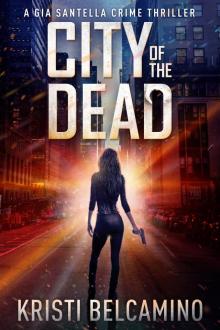 City of the Dead
City of the Dead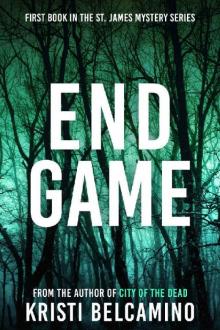 END GAME: A St. James Mystery (St. James Mysteries Book 1)
END GAME: A St. James Mystery (St. James Mysteries Book 1)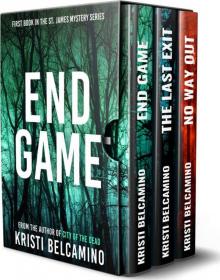 Tommy St James Mysteries Boxed Set
Tommy St James Mysteries Boxed Set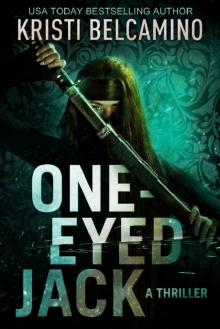 One-Eyed Jack
One-Eyed Jack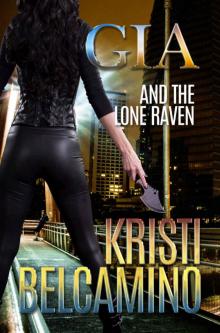 Gia and the Lone Raven
Gia and the Lone Raven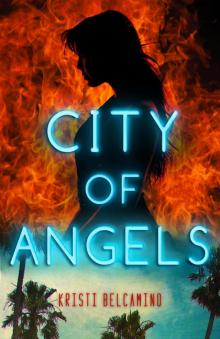 City of Angels
City of Angels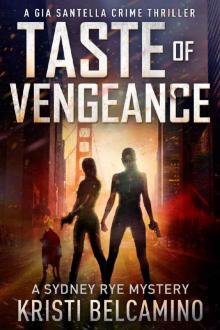 Taste of Vengeance
Taste of Vengeance Gia Santella Crime Thriller Boxed Set: Books 1-3 (Gia Santella Crime Thrillers)
Gia Santella Crime Thriller Boxed Set: Books 1-3 (Gia Santella Crime Thrillers)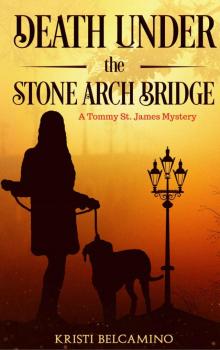 Death under the Stone Arch Bridge
Death under the Stone Arch Bridge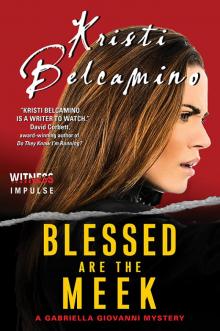 Blessed are the Meek
Blessed are the Meek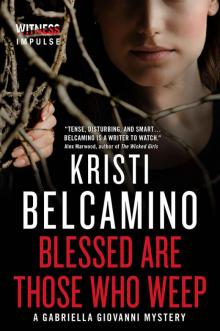 Blessed Are Those Who Weep
Blessed Are Those Who Weep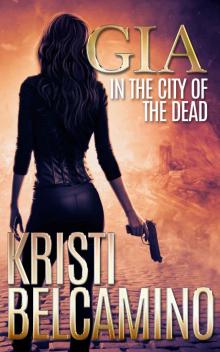 Gia in the City of the Dead
Gia in the City of the Dead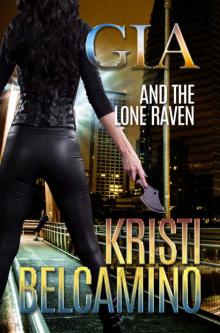 Gia and the Lone Raven (Gia Santella Crime Thriller - Novella Book 4)
Gia and the Lone Raven (Gia Santella Crime Thriller - Novella Book 4)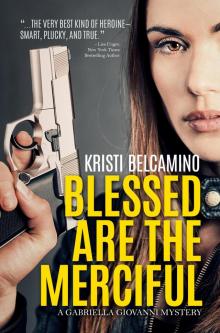 Blessed are the Merciful
Blessed are the Merciful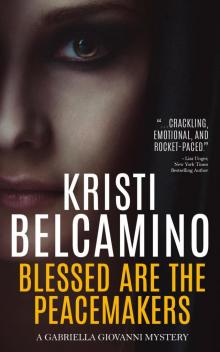 Blessed are the Peacemakers
Blessed are the Peacemakers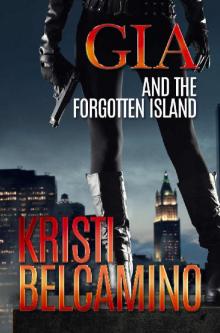 Gia and the Forgotten Island (Gia Santella Crime Thriller Book 2)
Gia and the Forgotten Island (Gia Santella Crime Thriller Book 2)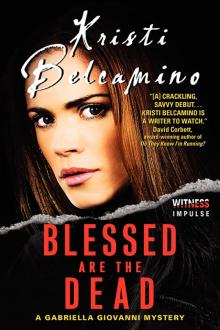 Blessed are the Dead
Blessed are the Dead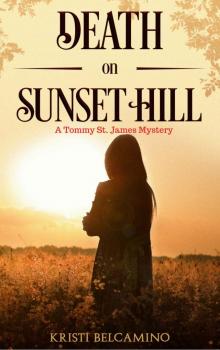 Death on Sunset Hill
Death on Sunset Hill